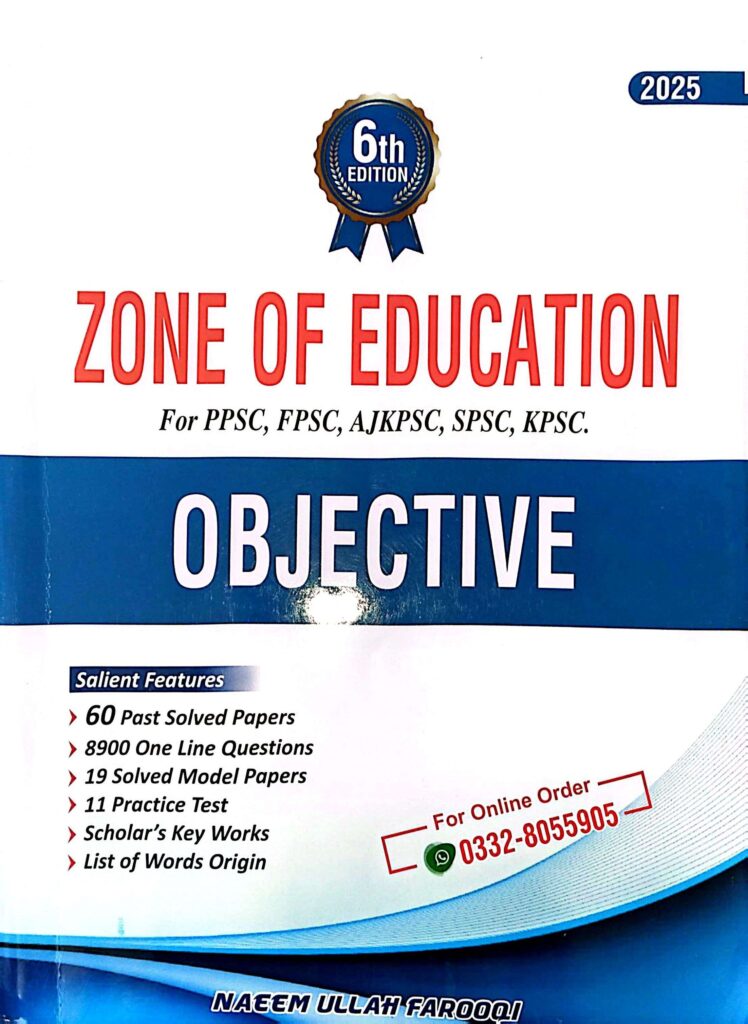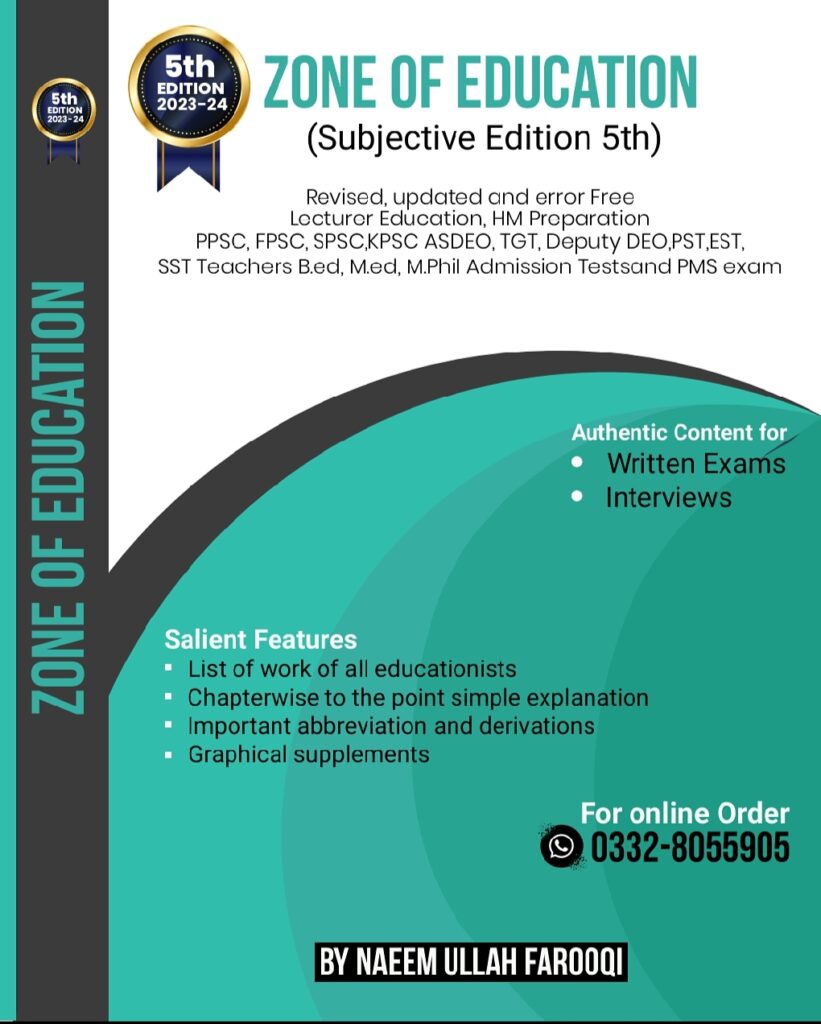History/Perspective 0f Education.
1. In Pakistan, there is very limited participation of teachers in the curriculum development process.
a. True *
b. False
2. Pakistan is facing the issue of preparing quality teaching materials.
a. True *
b. False
3. At the secondary school level (IX-X) it is optional.
a. Arabic
b. Islamiat
c. Science *
d. Integrated Curricula for grade VI-VIII has been introduced.
a. True
b. False
4. Secondary education in Pakistan has ______ stages.
a. 2
b. 4
c. 3
d. 5
5. Elementary education in Pakistan has ______ stages.
a. 2 *
b. 4
c. 3
d. 5
6. The content of the teaching in the middle classes revolves around:
a. Living things
b. Matter and energy
c. The earth and the Universe
d. All of these *
7. The drop-out ratio in the elementary schools.
a. 10%
b. 22%
c. 40%
d. 50% *
8. Major problem of fall of quality education is:
a. Economic conditions
b. Teacher
c. Weak curriculum
d. All above *
9. The education centre for a child is:
a. School
b. Home *
c. Society
d. None
10. Most of the teachers in Pakistan are:
a. Not aware of the psychological needs of the students
b. Not aware of the modern methodology of teaching
c. Not aware of the Modern Trends in Education
d. All above
1. Private sector involvement in education is encouraging.
a. True *
b. False
2. According to the Constitution of Pakistan (1956), the Federal Government is entrusted the responsibility for policy, planning, and promotion of educational facilities in the federating units.
a. True
b. False *
3. Alternative qualifications in Pakistan are also available but are maintained by other examination boards instead:
a. BISE *
b. SSC
c. HSSC
d. HEC
4. Management in the education sector is limited to:
a. Equipment
b. Physical infrastructure
c. Financial flows
d. All of these *
5. A curriculum normally focuses on:
a. Aims and objectives
b. Content
c. Methodology
d. Evaluation
e. All of these *
6. Under the existing system the Textbook Boards select the authors for books.
a. True *
b. False
7. In the late 1990s, the traditional Islamic schools, called _______, came increasingly under the influence of the anti-West Taliban movement in Afghanistan.
a. Madrasahs *
b. Masajid
c. Kutab khana
d. None
8. The National Education Conference held in:
a. 1950
b. 1951 *
c. 1952
d. 1953
9. What were the major aims of the National Education Policy 1979?
a. Focus on fostering deep and abiding loyalty to Islam
b. Creating awareness that a Pakistani is also a part of Universal Muslim Ummah
c. Inculcation of character in accordance with Holy Quran and the Sunnah
d. All of these *
![]()
1. The main function of the Ministry of Education to plan and review the National Curriculum.
a. True *
b. False
2. Who identify National Curriculum Framework?
a. Provincial Government
b. Federal Government
c. Ministry of Education
d. Text Book Boards
3. A Central/National Bureau of Curriculum and Textbooks was appointed to supervise curriculum and textbooks development/approval and to maintain curriculum standards from the primary through to the higher secondary levels.
a. True *
b. False
4. What is the role of Curriculum Wing?
a. To approve manuscripts of textbooks produced by other agencies before they are prescribed in various classes of an institution *
b. To delegate tasks such as the following for the curriculum reform process.
c. To review main principles of new national curriculum policy.
d. All of these
5. The purpose of education is not just to provide comfort to individual citizens but to sustain society.
a. True *
b. False
6. ______ explains education as a process, which develops obedience to God.
a. Imam Ghazali *
b. Ibne Khaldoon
c. Shah Waliullah
d. None
7. ______ describes education as the process, which helps in exploring the truth through insight, thinking and subjection to God.
a. Imam Ghazali
b. Ibne Khaldoon *
c. Shah Waliullah
d. Sir Syed Ahmad Khan
8. ______ understands Education as a mode that helps in promoting the natural perception through training for achieving the height of servitude to God.
a. Imam Ghazali
b. Ibne Khaldoon
c. Shah Waliullah *
d. Sir Syed Ahmad Khan
JOIN ZONE OF EDUCATIONPK!
Discover the most comprehensive and reliable pedagogy resources in Pakistan, curated for competitive exam success. Our content covers all competitive exam MCQs, including PPSC, FPSC, AJKPSC, SPSC, and more. Designed to empower learners with top-notch material and insights, trust us for your preparation journey!


